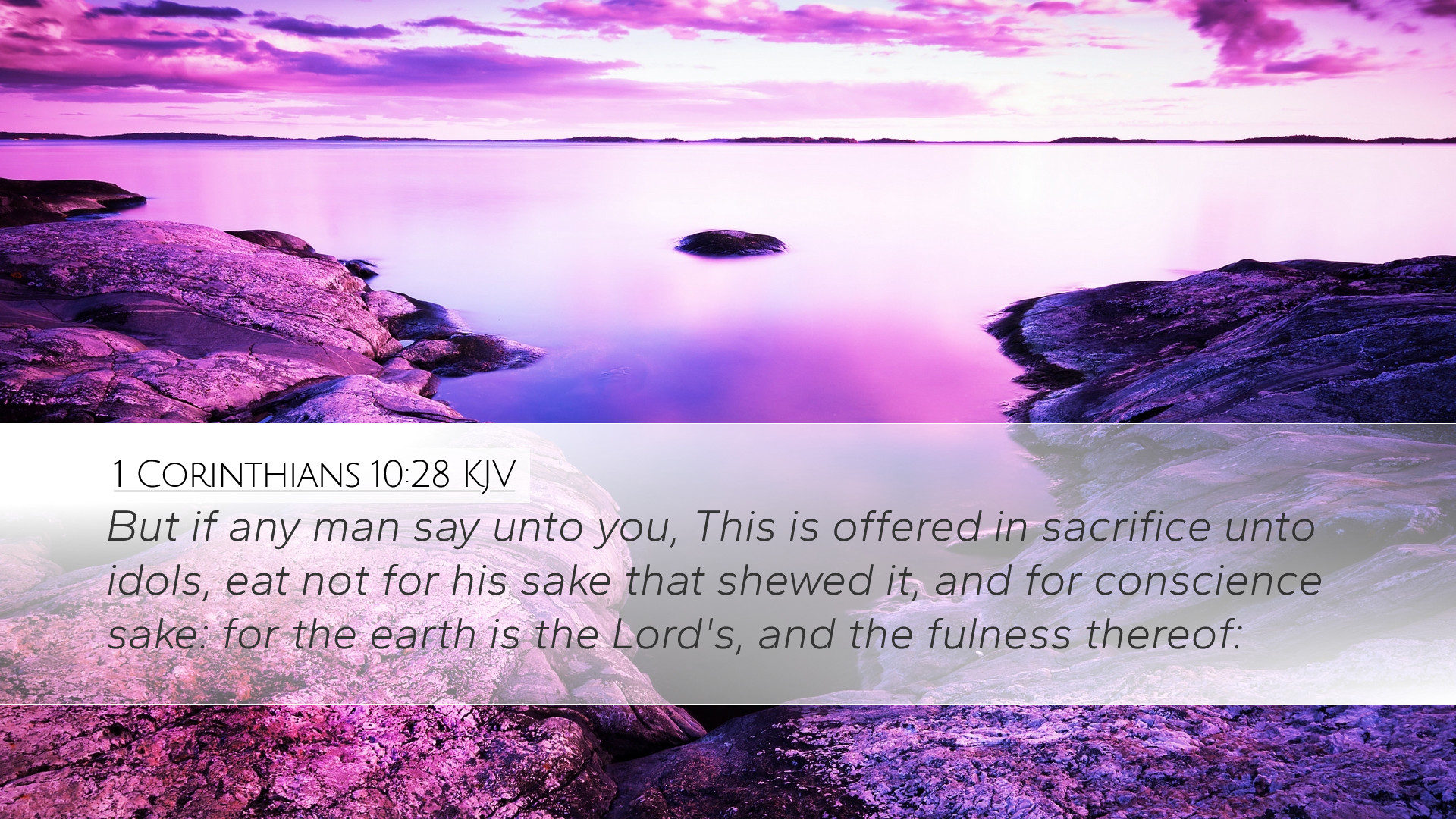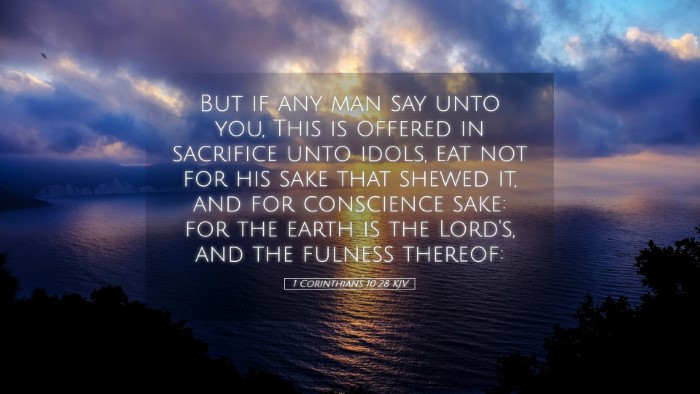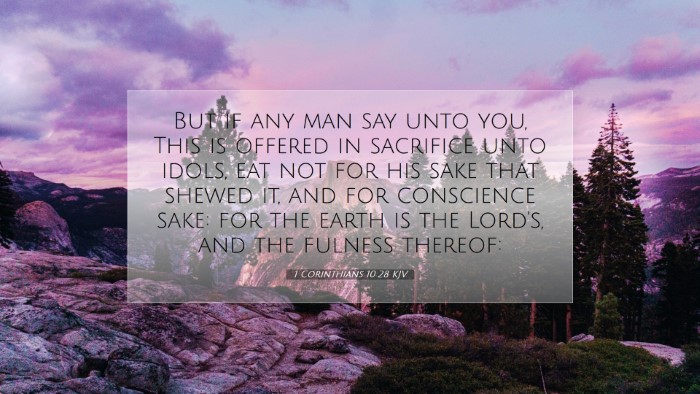Commentary on 1 Corinthians 10:28
Verse: 1 Corinthians 10:28 - "But if any man say unto you, This is offered in sacrifice unto idols, eat not for his sake that shewed it, and for conscience' sake: for the earth is the Lord's, and the fullness thereof."
Introduction
The verse in question finds itself in the broader context of Paul’s admonitions regarding food offered to idols. This discourse is essential not only for early Christians navigating pagan practices but also for modern believers considering their witness and conscience.
Commentary Insights
Contextual Analysis
In the earlier chapters of this letter, Paul addresses divisions, liberty, and responsibility within the community of believers. Matthew Henry emphasizes the vital point that though Christians possess liberty in Christ, this liberty should never be used as an occasion to cause offense or lead others astray.
Understanding of Idolatry
In the Corinthian context, meat was often sold in the market that had previously been offered to idols. The question arose as to whether eating such meat would imply endorsement of idolatry. Adam Clarke notes that Paul’s directive is rooted in the principle of being sensitive to the conscience of others in the community.
The Role of Conscience
Albert Barnes highlights the phrase "for conscience’ sake" indicating that believers must consider the perceptions of their fellow Christians. If their eating is perceived as participating in idolatry by others, it would be better to abstain. This consideration illustrates the need for a communal consciousness among believers.
Responsibility of the Strong
The “strong” in faith must bear responsibility towards the “weak”. Paul calls for self-denial for the benefit of others. Matthew Henry states that it is an essential Christian duty to be aware of how one's actions might impact the faith and moral standing of another believer.
Divine Sovereignty
The concluding clause of the verse, "for the earth is the Lord's, and the fullness thereof," serves as a divine affirmation of God's sovereignty over all creation, including meat that had been offered to idols. This statement, as explained by Adam Clarke, reinforces that all things are ultimately God’s, which should eliminate the fear of contamination from consuming such meat, provided it does not cause others to stumble.
Theological Implications
Liberty Versus Duty
The discussion around this verse provides deep theological insights into the balance between Christian liberty and moral obligation. Albert Barnes articulates that Christians are not to live only for themselves; they are stewards of their brothers’ and sisters’ spiritual well-being. This raises questions about the extent of Christian liberty in practical situations.
Witness to the World
Furthermore, in a world that is often watching and critiquing the church, the principles laid out by Paul are crucial. The manner in which believers conduct themselves regarding controversial issues reflects the love and grace of Christ. Matthew Henry argues that true Christian love operates actively, seeking the good of others rather than merely defending one’s individual rights.
Practical Application
Pastors, theologians, and students of the Scriptures can learn from the approach Paul takes here. It is not simply a matter of knowing what is theologically correct but also understanding how that knowledge translates into practice within the community. The directive to abstain from eating if it causes another to stumble is a potent lesson on the consequences of our liberty.
Conclusion
In summary, 1 Corinthians 10:28 serves as a reminder of the complexities of Christian living, where liberty must be measured against love and consideration for others. As articulated by Adam Clarke, the ultimate goal is to honor God in every action, considering both our freedom and responsibility towards our fellow believers.


